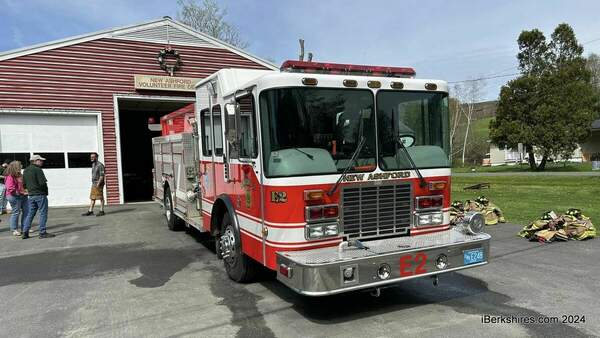Letter: Electronic Voting at Town Meeting
 |
To the editor:
This year, for the first time in Williamstown, we're proposing the town use electronic voting for town meeting.
At the start of the meeting, I will move to use electronic voting (a version of secret ballot) for the first 15 warrant articles. Those warrant articles are financial in nature and traditionally have passed almost unanimously without much debate. We will use those warrant articles to get people comfortable with the operation of the electronic voting devices. (We have some pre-meeting test questions set up for training, too. It's a simple device to use.)
After Article 15, I will move to consider Article 27 out of order to see if town meeting will agree to buy the electronic voting devices. Voting "yes" on Article 27 will signal that town meeting wants the electronic voting devices to be available to be used by town meeting. Voting "no" on Article 27 will signal that town meeting does not want electronic voting devices to be used by town meeting. This is where we will discuss whether we want to keep using the devices.
If we agree to purchase them, I will move to use electronic voting for the remaining articles on the warrant. If that motion carries, we will continue with the warrant and electronic voting. If not, back to voice vote for motions that do not require a two-thirds vote or count.
I'm hopeful everybody will give this system a chance. It is generally a good idea to try something before you decide on it. I'd like us to make the decision based on actual evidence and experience.
There are a couple of reasons why we're trying this system out. Primarily, that it's more democratic and it's more inclusive.
Electronic voting is more democratic because it's more accurate. Think about how we vote now. When you really examine it, there are some inaccurate qualities to it.
Voice Vote: Does a voice vote really capture the quantity of votes or just the volume? Should the louder voice carry more weight than the quieter one?
Standing Vote: While broadly accurate, it is by no means exact. Our counters are only human. Think about it: Try counting bricks in a wall from 20 feet. How accurate can you be?
Electronic voting is more democratic because each person gets one vote with equal weight and we record actual counts of votes for and against.
Electronic voting is more inclusive because voices of the minority are counted and private, which removes the potential for discrimination based on your vote. Imagine you have a different opinion than your employer. Imagine you have a different opinion than your neighbors. Imagine you have a different opinion than the majority of any definition (race, religion, sexual orientation, politics, etc). Voicing your vote in public could make you feel like you're an outsider. In fact, you may feel compelled to vote in a way you don't want to or you may not vote at all. Some people avoid Town Meeting for just this reason. There's a reason we vote in private for all other elections. Your vote is your vote it should not be constrained because you're not in the majority.
As we know, our open town meeting is our local legislature, but with some differences to the more traditional legislature like Congress or the Senate. For those types of legislature, we elect representatives to represent us with their votes. We need to know how they vote to know if they are accurately representing us. We expect them to vote the way we want them to (or the way they said they would) or we vote them out of office. But what about an open town meeting? It is a legislature, but it is different. It is a direct legislative body. Each voter represents themselves. Is anybody saying that we need to know somebody's vote so we could vote them out of town if we disagree with their vote? I would hope not. So, if not to judge, what is the use of the knowing how your neighbor voted? If the information is not going to be used, why gather it? Your vote is your vote and there should be no consequence for voting it.
I believe this will make town meeting more democratic and inclusive. I think this will make town meeting more inviting to people who don't traditionally go. So, please, come to town meeting. Make a comment if you want to or just listen to the debate. Make your decision and cast your vote on the electronic voting device. Your vote is between you and your conscience. Participate publicly but vote privately. What's more democratic than that?
Town meeting is on Tuesday, May 16, at the Mount Greylock Regional School gym. Registration begins at 6 p.m. Town meeting starts at 7 p.m.
I hope to see you there!
Hugh Daley
Chair, Williamstown Select Board
Tags: town meeting 2023,















